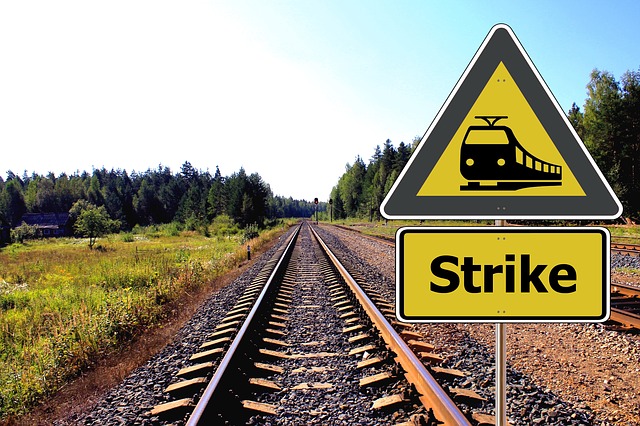United Voices of the World strike action demands for low paid and migrant workers to be granted a salary increase of 30%. The association also advocates for better working conditions and terms for the black, Asian, and minority ethnic (BAME).
The strike action by the United Voices of the World will cripple activities in NHS, St Mary’s hospital, along with the Ministry of Justice and the headquarters of ITV and Channel 4.

United Voices of the World demands
The association accuses employers of supporting discrimination by creating a two-tiered, racially segregated workforce where the black, Asian, and minority ethnic (BAME) and migrant workers work on unfavorable terms and conditions.
For example, at Greenwich, the vendor in charge of cafe workers will strike to demand better conditions of work, including occupation sick pay, reduced workloads, and salary payment according to London’s living wage.
The vendor’s poor working conditions lead to employees getting overworked, resulting in physically or mentally health issues.
A chef, Syddik, who works for the vendor, BaxterStorey, revealed how he had to work regularly work 80-hour weeks in intense heat due to under-staffing.
Being over-stressed on the job, Syddik collapsed and was hospitalized. However, he returned to work the following day because he doesn’t have occupational sick pay.
Syddik’s case and many others highlight the ways outsourcing jobs have affected the lives of BAME and migrant workers.
The effects of outsourcing are most apparent in the University of East London (UEL), where BAME and migrant workers take on jobs as security guards. The university refused to equalize the pay of migrant workers with other employees.
The United Voices of the World shall be arguing in court concerning the poor working conditions of migrants and their pay rates as both constitute a breach of the Equality Act 2010.
Similar strike action by United Voices of the World in 2017 called for the reinstatement of all of its outsourced cleaners back to in-house. The association vehemently stopped outsourcing in the London School of Economics, and some other universities have also stopped outsourcing.
According to the United Voices of the World, university administrations still believe their BAME and migrant workers, such as cleaners and security guards, are unworthy of the same terms and conditions as other British university staff.
So, a more workable solution to improving living and working conditions for migrants is by having workers from all nations and races organize, unite, and strike.

Be counted on social media and be heard.

United Voices of the World (UVW) is an independent grassroots trade union formed in 2014 and based in Waterloo, London.
UVW members are mainly migrant cleaners and workers in other outsourced or low-wage industries. UVW has a strong association with the Latin American community.
The union was born out of a long-running effort to secure the London Living Wage for outsourced cleaners at the Barbican Centre.
UVW strategy of colorful and disruptive mass action gained media attention in disputes with global brands such as Sotheby’s and Topshop.
While class reforms need the UK government’s legal action, social issues are showcased here for those who have been shunned and under-served by established unions. It’s a matter of second class citizens being used as pawns in class struggles known as ‘politics’.
Petros Elia, the co-founder of UVW, sounds off:
Brexit has created a fierce debate about the effect of migration on wages. But I hope that these strikes, and UVW’s past successes, will help people to make the case that Britain’s pandemic of low pay can never solved by the scapegoating of migrants. The only solution is having workers from all nations and races organise, unite and strike.








